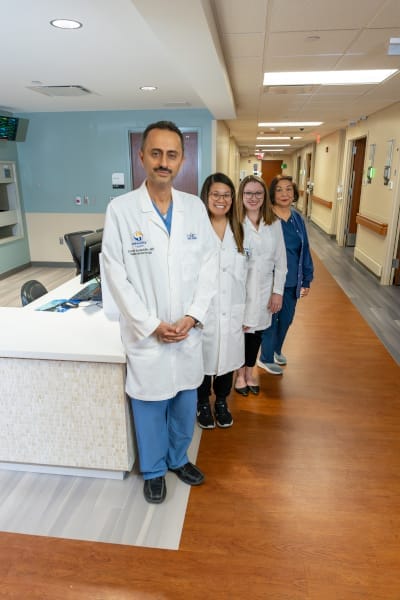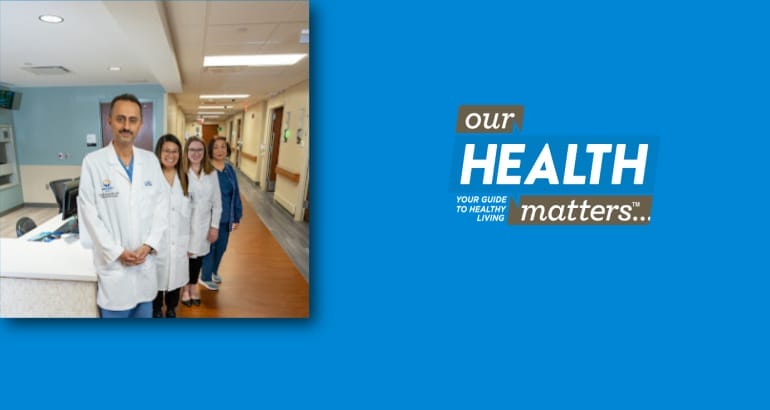By OHM Staff
A dedicated team led by Dr. Esmat Sadeddin provides academic medicine for all hepatitis C patients regardless of their ability to pay. “I truly feel proud of my team! Over the last four years, we have cared for over 350 hepatitis C patients, most of which achieved clinical cure despite many patients experiencing challenging circumstances.” — Esmat Sadeddin, M.D.

Unfortunately, many people are unaware they are infected with hepatitis C (HCV) because they do not experience symptoms. Over time, the virus can cause severe liver damage, which results in liver failure and cancer. And it is more common than people think. The U.S. Department of Health and Human Services estimates that the hepatitis C virus affects as many as 3.9 million Americans.
University Health Hep C Team
Esmat Sadeddin, M.D., Jessamine Endaya Daley, DNP, APRN, NP-C, Christa Tetuan, Pharm.D., BCACP, Lina Zubiri-Sequerra, R.N.
WHO DOES HEPATITIS C COMMONLY AFFECT?
Hepatitis C spreads through contact with infected blood, which means the virus can be spread between people. If you are over the age of 18, you should be screened for hepatitis C infection at least once. Those with risk factors may require more frequent monitoring. The risk factors include:
- Sharing needles or syringes
- Using intravenous or intranasal drugs
- Obtaining tattoos under unsanitary conditions
- Receiving a blood transfusion or organ transplant before 1992
- Receiving blood clotting factor for hemophilia before 1987
- Having unprotected sex
- Being born to a mother with hepatitis C
While many patients do not experience symptoms of hepatitis C, fatigue is the most common. Other symptoms may include fever, loss of appetite, nausea, vomiting, abdominal pain, dark urine, and yellowing of the skin or eyes (jaundice).
TALK TO YOUR DOCTOR ABOUT TESTING AND TREATMENT
Hepatitis C is diagnosed through blood testing and is not always included in standard blood workup. If you think you may be at risk, ask your healthcare provider for the test. Today’s treatments are highly effective at curing the hepatitis C virus. University Health has a team of people working to ensure you can afford treatment and navigate the healthcare system.
University Health offers convenient hepatitis C screening. Call 816-404-CARE to schedule an appointment with a primary care provider. Simply ask that the HCV screening be done at the same time as other blood work. For more information visit: uhkc.org





